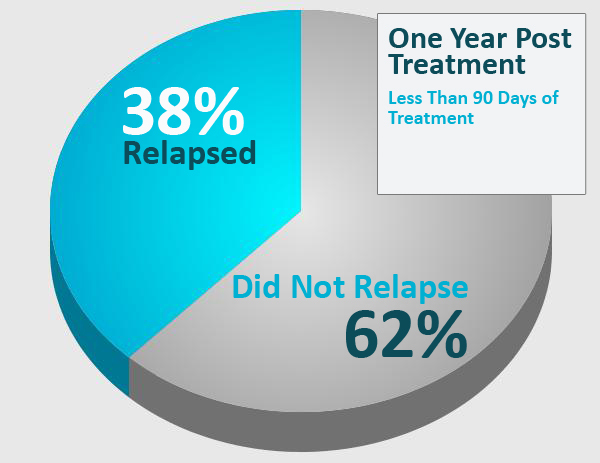Marijuana Abuse Treatment Clinic Olney MD
Home
Best Marijuana Abuse Treatment Clinic Olney MD Resources
Marijuana Abuse Treatment Clinic Olney MD
Walking hand-in-hand with Jesus through recovery is an important aspect of life for any Christian or anyone who wants to maintain a spiritual center. We make the best Christian treatment programs available, and provide the most effective: Inpatient Services Outpatient Services Long-term Rehab Short-Term Rehab Aftercare Transitional Living Options Philippians 4:13 “I can do all things through Him who strengthens me.” Pick up the phone and call us! The primary goal of any drug rehab is to help people stop using drugs and stay stopped.
Facilities that focus on co-occurring mental health disorders are dedicated to treating multiple mental health conditions at once. Christian Rehab Centers Put addiction behind you and reclaim your life Call our 24/7 confidential hotline now 800-773-9821 Drug and alcohol rehabilitation is a serious issue.
Much more Resources For Oxycontin Detox Treatment Programs

Here are Some Even more Info on Endodan Addiction Detox Clinic Olney MD
Tips on keeping the environment drug free This project is funded by the Massachusetts Department of Public Health, Bureau of Substance Abuse Services.Addiction hotline – drug abuse hotline for parents 1. Outdoor experiences include activities such as hiking, climbing, rafting, and fishing. Marijuana is the most widely used drug … Continue reading “Christian rehab in MN: Teenagers Transformed” Cocaine, heroin, marijuana and methamphetamine are the most widely abused drugs in the state of Missouri.
Even more Details About Oxycontin Detox Treatment Programs
Since true healing that come from within only comes from God. If you or a loved one is struggling with addiction in Texas, call our 24-hour confidential hotline now at (844) 402-3605. By doing this, our counselors have a better idea of what treatments are best to lead you towards sobriety. For those who can see what life truly means and are therefore grateful to have been given such an award, the value they place on their sobriety has no limit; they are the ones who place it high upon their shelves, atop their Oscars, and make sure to dust it daily, knowing that it is well worth the constant care it deserves to receive.
Much more Resources For Amobarbital Addiction Treatment Programs Olney MD
Dopamine, a neurotransmitter in the brain, can be found in the areas of the brain which are responsible for emotion, feelings of pleasure, cognition, motivation, and movement. Medication like methadone and buprenorphine can be used to treat addiction to prescription opiates, and behavioral therapies can be used to treat addiction to prescription stimulants, benzodiazepines, and other drugs.[6] Types of behavioral therapy include: Cognitive-behavioral therapy, which seeks to help patients to recognize, avoid and cope with situations in which they are most likely to relapse. Anti-anxiety medications, sedatives, and hypnotics (including Xanax, Valium, Ambien): Contracted pupils; drunk-like, slurred speech, difficulty concentrating, clumsiness; poor judgment, drowsiness, slowed breathing. Making a decision that will change the rest of your life is crucial when it comes to choosing the right Christian treatment center for an individual’s specific needs. Different results have been reached for other drugs, with the twelve steps being less beneficial for addicts to illicit substances, and least beneficial to those addicted to the physiologically and psychologically addicting opioids, for which maintenance therapies are the gold standard of care.[29] Client-centered approaches[edit] In his influential book, Client-Centered Therapy, in which he presented the client-centered approach to therapeutic change, psychologist Carl Rogers proposed there are three necessary and sufficient conditions for personal change: unconditional positive regard, accurate empathy, and genuineness. Proposed models of affect-driven tobacco use have focused on negative reinforcement as the primary driving force for addiction; according to such theories, tobacco is used because it helps one escape from the undesirable effects of nicotine withdrawal or other negative moods.[38] Acceptance and commitment therapy (ACT), is showing evidence that it is effective in treating substance abuse, including the treatment of poly-substance abuse and cigarette smoking.[39][40] Mindfulness programs that encourage patients to be aware of their own experiences in the present moment and of emotions that arise from thoughts, appear to prevent impulsive/compulsive responses.[38][41] Research also indicates that mindfulness programs can reduce the consumption of substances such as alcohol, cocaine, amphetamines, marijuana, cigarettes and opiates.[41][42][43] Behavioral models[edit] Behavioral models make use of principles of functional analysis of drinking behavior.
Click Here for More Information
Previous Next
You may also like:
Palladone Rehab For Addiction Roberts IL
Marijuana Detox Facilities Bear Creek WI
Suboxone Detox Facility Stockton KS
Cocaine Rehab Clinics Chandlers Valley PA
Halcion Addiction Treatment Clinic Polk PA
Molly Rehab Treatment Facilities Hailey ID
Temesta Addiction Facility Frenchboro ME
Christian Drug Rehab Centers Near Me Avalon CA
What Is Addiction Definition Kopperl TX
Amytal Abuse Program Crystal City TX
Dexedrine Detox Facilities Winterville MS
Alprazolam Detox Treatment Clinics Costa WV
Ecstasy Rehab Facilities Hiland WY
Mdma Addiction Rehab Worthington WV
Crystal Meth Addiction Rehab Facilities Imnaha OR
Subutex Addiction Detox Center Willow Island NE
Naltrexone Detox Program Florence MT
Disulfiram Addiction Detox Clinics Adelanto CA
Roxicodone Detox Treatment Facility Pony MT
Concerta Abuse Treatment Center Gainesboro TN